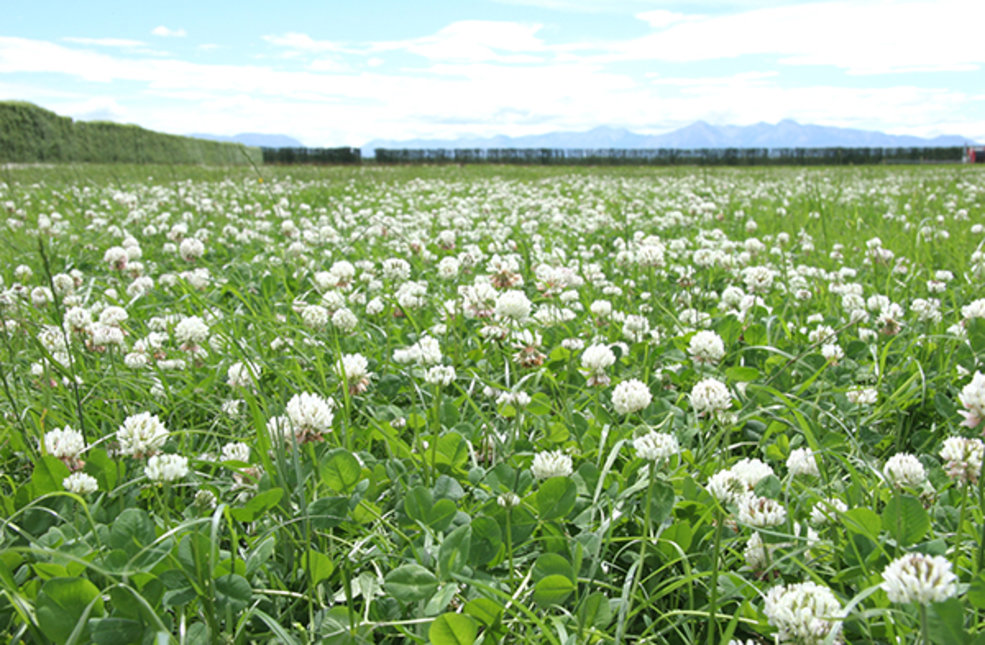Spin to win - over-sow clover seed this spring
Are you happy with the clover content of your pastures? The target is 30%, and remember there’s generally much less clover present than you think, thanks to the top heavy nature of clover plants.
If you don’t have enough clover, you’re not alone – white clover is struggling on many farms these days, for several reasons.
Yet it remains a key species in NZ farm systems, providing superb animal nutrition; significant amounts of free, natural nitrogen, and higher overall pasture dry matter yield.
Chances are there isn’t much clover in your pasture at present – maybe 10%, possibly 20% if conditions are ideal, probably not the 30% advised for optimal farm performance.
Pasture system specialist Blair Cotching, from Barenbrug, says oversowing clover seed in spring is a good way to start restoring pastures that need a top up.
The first step is to identify what caused clover to run out in the first place. Grazing management, lack of fertility, sowing technique, and broadleaf weed herbicides are common issues.
“Check soil test results, or get new tests done. To thrive, clover needs phosphorus (P), potassium (K), sulphur (S) and molybdenum (Mo). It also needs the right soil pH – 5.8 to 6.2.”
He recommends spinning on 4-6 kg/ha AGRICOTE Oversow clover from now through October in pastures with nil or minimal clover.
Best results come from doing this no more than three days before grazing. This allows stock to ‘harrow’ the seed for good soil contact.
Seed can also be spun on a day or two after grazing, ideally following a good even grazing. In this situation harrowing afterward can improve the results.
“After oversowing, clover seedlings need lots of light to grow properly, so it’s really important that grass is not allowed to get too long – don’t use oversown paddocks for silage crops.”
Best results with oversowing come from using a modern clover, like Kotuku. This has been selected for rapid establishment speed, helping it compete better against ryegrass which is already present in the pasture.
“Modern varieties have been bred for higher DM yields which equates to extra N fixation, too,” Blair adds.
Seed coating is also essential for over-sowing, using a formulation that does not include insecticides or fungicides. AGRICOTE Oversow contains lime and nutrients, to improve seed to soil contact and give clover a good start, with zero grazing withholding.
“Now more than ever, white clover has a lot to offer,” Blair says. “Feed quality is very high; animals love it and it’s an important source of protein in summer when pasture is often deficient.”
Clover can also fix 25-30 kg N out of the atmosphere for every tonne of DM grown/ha, improving pasture growth and quality for no cost.
“If you revive and care for it in your pastures, white clover will reward you with environmental benefits, and production gains for both animals and pasture.”


